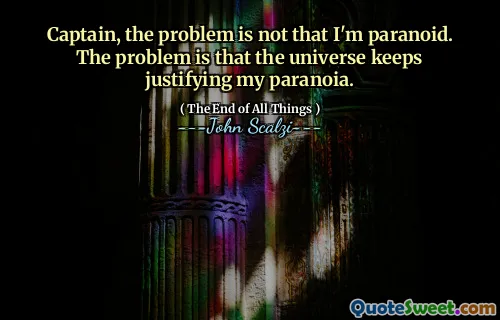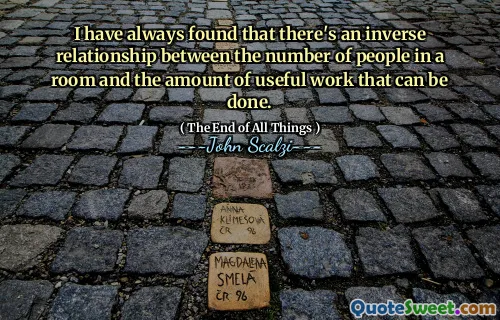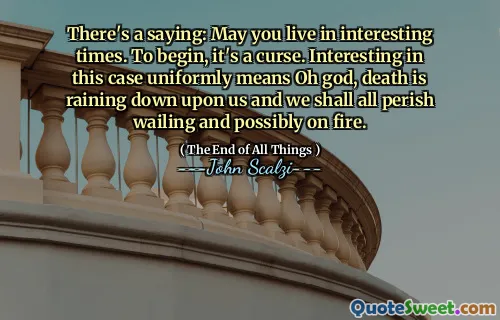And so we learn how simple it is to change the history of the universe," Sorvalh said. "All you need is for every other thing to have gone so horribly wrong
In "The End of All Things" by John Scalzi, the character Sorvalh reflects on the ease with which history can be altered. He suggests that a significant shift in the universe's trajectory can happen with just a few disastrous events occurring simultaneously. This insight highlights the fragility of history and the interconnectedness of events that shape our reality.
The statement emphasizes a profound philosophical notion: that chaos and misfortune can lead to monumental changes. It raises questions about fate, free will, and the unpredictable nature of existence, illustrating how a delicate balance can dictate the course of the universe. Through this lens, Scalzi's work invites readers to consider the implications of their choices and the broader consequences of seemingly trivial occurrences.








